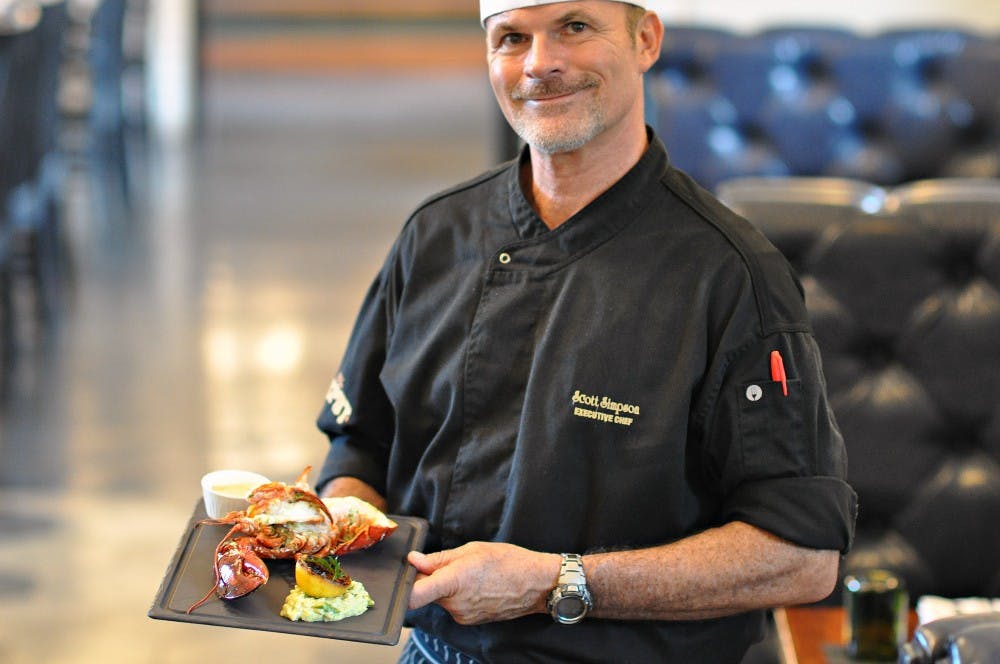After being greeted and taken to their seats, customers at The Hound and The Depot have now been told about a 3% culinary fee that has been added to the food items on their bill before the server takes their order.
On Oct. 15, the Executive Leadership Team for the two restaurants decided to add this fee, according to a press release.
The press release states that the fees were added to assist in providing higher wages for kitchen employees and combat the nationwide culinary worker shortage that has been continuously growing throughout the country.
“We rely heavily on our kitchen team to provide the highest quality food and must implement this new policy in order to pay a more competitive wage and retain the best talent possible,” according to the Executive Leadership Team in a press release. “This fee is distributed directly to the non-management hourly kitchen staff in addition to their normal rate of pay.”
Scott Simpson, executive chef and co-owner of The Depot, has worked at the restaurant since it opened four years ago. He does the hiring for the culinary team and has seen first-hand what has been happening to jobs in the culinary field.
“The culinary career, there was a time when it was very appealing and considered exciting, and there’s all these celebrity chefs,” Simpson said. “People were kind of getting drawn to it because of that, but I think that people realize that it’s a lot harder than what it looks like on TV; that flood of applicants quickly tapered off.”
Culinary jobs are often underestimated in regards to how much work goes into it and how large of a time commitment it is, Simpson said.
“It’s a pretty hard position,” he said. “It’s a pretty hard job. There are difficulties within the job like manual labor, but it also requires skill, and usually for that skill, you have to invest in personally to learn that trade. You also may have to pay to go to culinary school to do that.”
When people decide to pursue a culinary profession, they often end up taking a second job in order to take care of their families or pay their bills, he said.
“People who are looking to raise a family and do what they love to do, they oftentimes have to pick up a second job,” Simpson said. “Every person who has picked up a second job has always told me that they could do it in their sleep compared to what they have to do in the restaurant.”
The fee is not an idea that originated in Auburn, so if customers have questions for the restaurants or would like to discuss it further, the Executive Leadership Team encourages them to reach out to a manager of either establishment.
“Our intention is to be transparent, to both our staff and our guests and to provide a fair living wage to all of our employees,” the Executive Leadership Team stated in the press release. “We are grateful for the continued loyalty of our Auburn Family. Together, we are building a better future for the Auburn culinary community.”
By adding the fee, the kitchen staff will have a more visible appreciation given to them, something that is usually looked over, Simpson said.
“If you think about it, when you choose to go out to eat at a nice restaurant, you’re really going for the food and the dining experience, and yet it seems that the process has developed so that you can valet park your car, and that person may get a little tip appreciation,” he said. “You will probably get a beverage from the bar, and granted, they have a talent and a skill to make a good drink, but they’ll get something. Then you have a server that will get one. The only people that really don’t get a ‘thank you' verbally very often or a tip appreciation is the person who is driving the customers to come to the restaurant.”
Some people have questioned why the establishments didn’t simply raise the prices of food items on the menu instead of adding the fee. According to Simpson though, that method would be a more “trickle-down” approach, and would require prices to go up a lot.
Overall, the reviews for the culinary fee have been positive, he said.
Looking toward the futures of The Hound and The Depot, Simpson said that he is hoping to continue to serve the Auburn community.
“We’re really proud. We feel like we’re advancing the restaurant industry standard — not just in Auburn, but in the state of Alabama,” he said. “I think it will help the Auburn economy if we keep up this caliber of restaurant.”
Do you like this story? The Plainsman doesn't accept money from tuition or student fees, and we don't charge a subscription fee. But you can donate to support The Plainsman.





